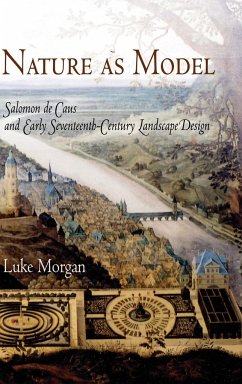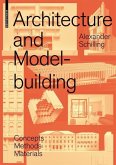Salomon de Caus has been viewed as, variously, a Protestant martyr, the unsung inventor of the steam engine, one of the most important early hydraulic engineers, and a garden designer whose work was influenced by astrology and hermeticism. The first comprehensive book on this protean figure, Nature as Model sifts through historical material, Caus's own writings, and his extant landscape designs to determine what is fact and what is fiction in the life of this polymathic and prolific figure. In doing so, it clarifies numerous hitherto unresolved problems in his biography and historiography. As Luke Morgan shows, Caus made important contributions to some of the most significant landscape projects of his period, including the gardens of Coudenberg Palace in Brussels, Richmond Palace, Hatfield House, Somerset House, Greenwich Palace in London, as well as, most famously, the Hortus Palatinus in Heidelberg, which he designed for the Elector Palatine, Frederick V, and his wife, Elisabeth Stuart, daughter of James I of England. In his work, Caus drew on his intimate knowledge of the late sixteenth-century Italian garden, and through his commissions the design principles and motifs of the late Renaissance garden were transmitted across Europe. The book is a masterful exercise in historical reconstruction, showing how Caus has been read by subsequent generations intent on nationalism, romance, or magic. Morgan investigates the ways in which the early modern garden actually generated meaning through conventional motifs rather than through esoteric narrative programs.
Hinweis: Dieser Artikel kann nur an eine deutsche Lieferadresse ausgeliefert werden.
Hinweis: Dieser Artikel kann nur an eine deutsche Lieferadresse ausgeliefert werden.








